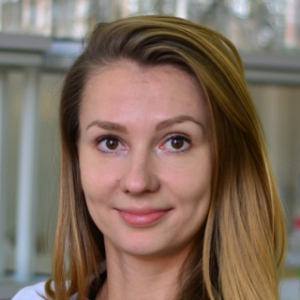Title : The new player in the fight for plant regeneration: WOX5
Abstract:
Somatic embryogenesis (SE) exemplifies the unique developmental plasticity of plants. In SE, the already differentiated somatic cells can enter a new embryogenic developmental pathway to form a functional somatic embryo. For years, SE has been widely explored in plant biotechnology for micropropagation and genetic transformation of plants.
During SE, a complete plant is regenerated from specific somatic cells that respond to SE-inductive conditions, most frequently, auxin treatment. Understanding the molecular signature of the SE-responsive explant cells is of central interest in research on cell pluripotency/totipotency. In Arabidopsis, like in other plants, a very limited number of explant cells can respond to SE-inductive treatment and undergo embryogenic development in vitro [1-3]. So far, a highly heterogeneous cell population that consists of both embryogenic and non-responsive explant cells has been analyzed in studies on SE. To overcome the current limitations in studies on SE related to the heterogenic developmental status of the analyzed explant cells, we implemented a novel analytical approach, the FANS (fluorescence-activated nuclei sorting) method, in studies on SE [4-5]. The FANS method was adopted and used for nuclei isolation from SE-responsive explant cells of Arabidopsis. A highly homogenous population of embryogenic cells that was obtained with the FANS method was used in RNA-seq analyses. The candidate molecular determinants of cell pluripotency/totipotency were identified. The results revealed a few highly upregulated (FC>5; p<0.05) genes on the 3rd day of SE induction, including several genes encoding transcription factors. The candidate TFs functions are related to stem cells maintenance, cells proliferation, and differentiation. One of the candidate gene was WUSCHEL-RELATED HOMEOBOX 5 (WOX5). WOX5 is a member of the WUSCHEL family of homeodomain transcription factors, required for quiescent center (QC) function and columella stem cell maintenance in the root meristem has been recognized for its pivotal role in pluripotency acquisition during somatic embryo formation in plant tissue culture. Our study reveals that WOX5 can control the pluripotency of somatic cells which is manifested in SE process. During SE WOX5 is involved in maintaining auxin homeostasis by regulating auxin biosynthesis and distribution. This finding advances the understanding of WOX5's crucial role in maximizing in vitro plant regeneration. The collective evidence underscores WOX5's role in influencing somatic embryo formation, thereby deepening our understanding of plant development and offering potential applications in biotechnology and agriculture. This work was supported by a research grant from the National Science Centre in Poland (SONATA17 2021/43/D/NZ1/00154).
Audience Take Away Notes:
- Somatic Embryogenesis (SE): Understanding the process and its significance in plant biotechnology, including the role of auxin treatment in inducing SE
- Cell Pluripotency/Totipotency: Insights into the molecular signature of SE-responsive explant cells and the importance of cell plasticity
- FANS Method: Introduction to the Fluorescence-Activated Nuclei Sorting method and its application in isolating homogeneous embryogenic cell populations
- Molecular Determinants: Identification and functions of key transcription factors involved in SE, particularly focusing on WOX5 and its role in maintaining auxin homeostasis and pluripotency during SE
- Biotechnologists and Genetic Engineers can apply the knowledge of SE method to improve micropropagation techniques and genetic transformation protocols, potentially increasing efficiency and success rates.
- Plant Biologists: The insights into cell pluripotency and the role of specific transcription factors, like WOX5, can guide further research on plant development and tissue culture methodologies
- Agricultural Scientists: Understanding the mechanisms of SE can aid in developing crops with enhanced traits, improving agricultural productivity and resilience
- Enhanced Techniques: Improved methods for plant regeneration and genetic modification will streamline laboratory procedures and field applications, leading to more robust and scalable solutions in plant biotechnology
- Innovative Research: The knowledge of key molecular determinants in SE can inspire new research directions, potentially leading to groundbreaking discoveries in plant science
- Practical Applications: The ability to manipulate SE processes can lead to the development of superior plant varieties, addressing global challenges like food security and climate change adaptation
- Educational Advancement: Incorporating the latest research into teaching materials will enhance the quality of education, preparing students to tackle contemporary issues in plant science and biotechnology
- This research is highly relevant for other faculty members. It provides:
- A Model System: SE in Arabidopsis serves as an excellent model for studying cell pluripotency and differentiation, which can be extrapolated to other plant species
- Advanced Techniques: The FANS method and RNA-seq analysis are cutting-edge techniques that can be adopted and adapted for various research projects in plant science
- Collaborative Potential: The findings on WOX5 and other transcription factors open up avenues for collaborative research to explore their roles in different contexts and species



